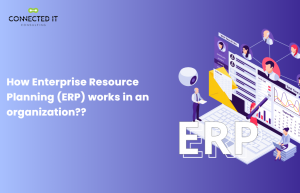ERP Technologies – ERP is an automated solution that consistently incorporates organizational tasks. According to a Statista survey, more than 94 percent of firms claim that ERP systems have enhanced data security centers.
We have outlined a list of ERP technologies utilized in ERP development projects further down in this article.
Have a look,
PostgreSQL
PostgreSQL is an advanced database with the most advanced open-source database technology. It supports a variety of indexing algorithms, full-text search, and flexible search. The database also includes robust tools such as server management studio and server profiler.
MSSQL
Microsoft’s MSSQL is a well-known ERP Software database that can help you optimize a server’s performance, assuring the availability and restoring your applications’ ability. It is the preferred option of developers due to its low cost, improved performance, and enhanced security features.
Oracle SQL
Oracle SQL database’s self-governing qualities enable the exclusion of system failures. Automated backup of Oracle SQL allows easy access to data and eliminates the need for manual chores. As a result, both relational cloud and non-relational database services support Oracle SQL.
Frontend Technologies for the ERP
There have been many front-end ERP technologies available for designing beautiful, quick, and responsive interfaces in recent years.
Choices for both a desktop interface and a web-based version may differ. Each of them has its own pros and cons.
JavaScript
JavaScript is a critical component of modern online applications. In most circumstances, it is an excellent solution for developing a cloud-based ERP system. It can be used with Node.js as a server-side solution to offload heavy work to the cloud.
AngularJS
AngularJS can assist programmers in speeding up the development process. It also enables one to access the pre-information when a query generates quickly. It also allows the creation of dynamic apps, which implies you can always get tasks completed according to your specifications.
React
Because of its vast features, React provides an excellent solution to ERP development. It is ideal for an organization’s solution-driven outcomes. It is simple to utilize since once you build codes for websites, you can use them for mobile app development, lowering overall expenditures.
Vue.JS
The development of user interfaces uses a progressive architecture. It enables you to construct robust single-page programs that function identically to their desktop counterparts. If you already have a project, adding Vue.JS is a breeze. Its code writing freedom makes it an excellent alternative for engineers.
Backend Programming Technologies
There are a plethora of back-end ERP technologies. The final call, though, is determined by your long-term goal.
.NET
.NET and ASP.NET are the all-time favorites among ERP developers. .NET enables easy integration of apps with clients through the internet.
It includes a comprehensive collection of tools for web and desktop development, including WPF and Winforms. Because of its ability to receive and communicate information using conventional internet protocols,.NET is most commonly used for online services.
Ruby
Ruby is the next innovative ERP technology on our list. Because of its self-hosting capability, it can expand modules and classes. If you want to create a web-based ERP without a desktop version, Ruby is a good choice for the backend.
Python
Python is an open technology that is simple to utilize in Enterprise Resource Planning . Python’s goal-oriented language is simple to use and read, allowing programmers to implement it quickly. It provides sophisticated data and enables regular check-ins, as well as acting as an autonomous garbage collector.
PHP
PHP is one of the most widely used programming languages for content management systems. PHP being an adopted language due to its lack of some features, still had a strong start as the first server-side technology.
Conclusion
Selecting the right ERP software for a specific use case or business can be difficult. As a result, many factors such as Platforms, number of users, database structure, scalability, security should be looked for while selecting the right ERP solution.
Before proceeding with the analysis, one should appropriately examine all the criteria to avoid any errors and losses.
For more information related to ERP Implementation, Business Process Mapping, Business Process Re-engineering, Get in touch with us, the best in Ireland, ERP consulting providers- Connected IT.
Related Links
ERP Project Management
Business Process mapping
Small Business ERP
ERP Consulting



